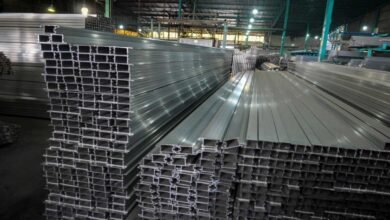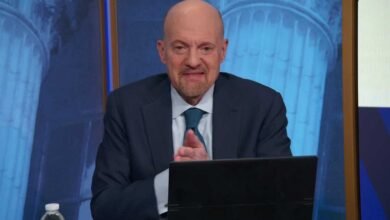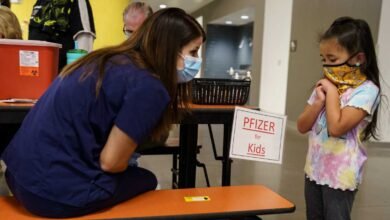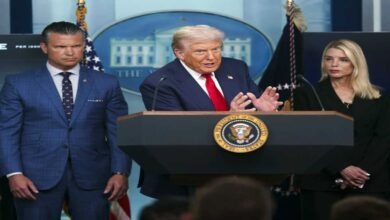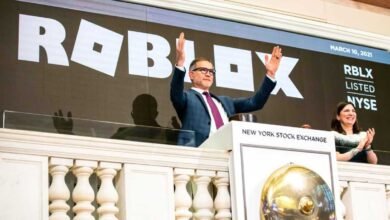‘Godfather of AI’ Has a Surprising Career Tip: ‘Train to be a Plumber.’ Here’s Why.
As artificial intelligence threatens to reshape the white-collar workforce, experts and a new generation of workers are looking to an unexpected place for job security: the skilled trades.

When Geoffrey Hinton, the Nobel Prize-winning computer scientist widely known as “the Godfather of AI,” offers career advice, people listen. His recent message on a podcast was strikingly simple and counterintuitive: “Train to be a plumber.”
This isn’t just a quirky soundbite. Hinton’s advice encapsulates a growing consensus among technologists, economists, and tradespeople alike: in the age of AI, the jobs requiring manual dexterity, on-the-spot problem-solving, and physical-world expertise may be far more secure than many prestigious and high-paying office jobs.
As AI’s capabilities expand at a breathtaking pace, the traditional hierarchy of job security is being turned on its head.
Key Takeaways: The Shifting Landscape of Job Security
-
Expert Warning: AI pioneer Geoffrey Hinton argues that manual skill-based jobs like plumbing are less vulnerable to automation than roles like paralegals.
-
White-Collar Jobs at Risk: A Microsoft report identified interpreters, writers, and customer service reps as jobs potentially endangered by AI, while roofers, painters, and hazardous material removers were considered safe.
-
The Human Advantage: Experts in trades like HVAC and automotive repair emphasize that AI cannot replace the hands-on, improvisational decision-making required for physical installations and repairs.
-
Gen Z is Pivoting: A recent survey found that 42% of Gen Z adults, including many college graduates, are pursuing blue-collar careers, citing concerns about AI and the desire to avoid student debt.
-
Robotics Reality Check: While robotics are advancing, leading experts say the idea of humanoid robots replacing skilled tradespeople is still a “myth” and that progress is slow.
The Great Inversion: Why Your Degree Might Offer Less Protection Than a Wrench
For decades, a college degree was seen as the surest path to a stable, well-paying career. But the rise of generative AI, which excels at processing information, generating text, and writing code, has put a bullseye on many white-collar professions.
“Someone like a legal assistant, a paralegal, they’re not going to be needed for very long,” Hinton explained, highlighting how AI can efficiently handle tasks like document review and research that once required human paralegals.
This sentiment is backed by major tech players. A recent Microsoft report listed several knowledge-based occupations as being at risk from AI, including:
-
Interpreters
-
Historians
-
Customer Service & Sales Representatives
-
Writers
In stark contrast, the roles deemed “safe” were overwhelmingly hands-on: roofers, rail operators, painters, and even healthcare support roles like phlebotomists.
The Tradesman’s Moat: What AI Can’t (Yet) Replicate
Why are the skilled trades proving so resilient? The answer lies in the complex, unpredictable nature of the physical world.
“Automation is a low threat to these jobs because it involves someone manually installing equipment, and many of those who do are getting close to retirement,” said Tony Spagnoli, director of education for the North American Technician Excellence (NATE), a leading HVAC certification body. “AI can’t replace parts or make improvisational decisions.”
An AI can analyze a diagnostic code, but it can’t crawl into a tight attic space, identify a corroded wire that a sensor missed, and skillfully solder a new connection. This combination of physical skill, experience-based intuition, and real-world problem-solving forms a protective barrier against automation.
This trend is reflected in official government data. The Bureau of Labor Statistics (BLS) projects steady growth in openings for a variety of trades in the coming years—a significant trend, especially as entry-level job openings for recent college graduates have begun to stagnate.
Gen Z’s Pragmatic Pivot to Blue-Collar Careers
The theoretical threat of AI is already having a real-world impact on career choices, particularly among the youngest generation in the workforce.
A survey of over 1,400 Gen Z adults by Resume Builder revealed a stunning shift:
-
42% of respondents, including many with college degrees, were already working in or pursuing a skilled trade.
-
Their top motivations were avoiding crushing student debt and reducing the risk of being replaced by AI.
“More Gen Z college graduates are turning to trade careers and for good reason,” wrote Stacie Haller, Resume Builder’s chief career adviser. “Many grads find their degrees don’t lead to careers in their field, prompting them to explore more practical, in-demand alternatives.”
What About Robots? The Reality vs. the Hype
The obvious counterargument is robotics. If AI is the brain, aren’t advanced robots the hands that will eventually perform these manual tasks?
While progress is being made, experts on the front lines of robotics research urge a healthy dose of skepticism.
“It’s a very wide misconception that we are on the verge of having humanoid robots basically replace workers. In my mind, that’s a myth,” stated Ken Goldberg, a leading robotics professor at the University of California, Berkeley. He explains that most AI is trained on text data, giving it almost no understanding of the physical world. The robots themselves are still clumsy and far from replicating the nuanced skills of a human expert.
Rather than a total replacement, the future likely involves collaboration. AI will become a powerful tool for tradespeople, not their replacement.
“It might eventually help diagnose a problem, but there will always be a need for testing and replacing auto parts,” said Matt Shepanek of the National Institute for Automotive Service Excellence (ASE). In this vision, AI acts as an advanced diagnostic assistant, leaving the critical, hands-on work to the human mechanic.
The message is clear: while no job is entirely “AI-proof,” the careers that require us to engage with the messy, unpredictable physical world are proving to be the most durable anchors in a sea of technological change.




